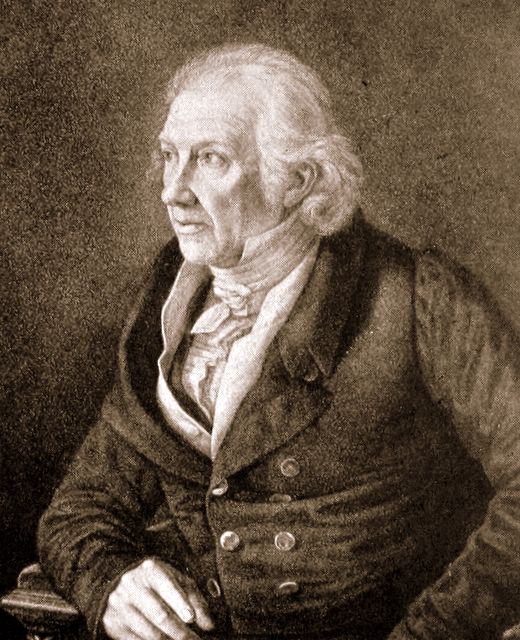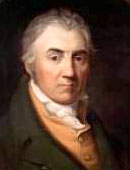

German composer, born in Berlin. The son
of a mason, he also learned the trade (becoming a master in
1783) but pursued musical activities early, including piano and
violin instruction. In 1779 he was a violinist in the Doebblin
Theater orchestra; he studied composition with
Carl Fasch, 1784-86, and joined his Singakademie in 1791.  He took over as
director of the group when Fasch died in 1800 and started a
companion orchestral ensemble for the Singakademie, the
Ripienschule, in 1808. He became a member of the faculty of the
Royal Academy of the Arts in Berlin in 1809, the same year that
he started the Liedertafel, a men's singing society for which
he wrote many choral pieces. In 1822 he established the Royal
Institute for Church Music, which he himself directed. Goethe
admired Zelter's settings of his poems; the two became friends
and established an extensive correspondence. He was a composer
primarily of vocal works; it is for his lieder (around 200)
that he is remembered today. His first book of lieder was
published in 1796, the second in 1801. Several other
collections followed, as well as songs published in almanacs.
He composed cantatas, various other sacred and secular choral
works, a viola concerto, keyboard music. He wrote the
pedagogical works Practische Gesang-Lehre (MS, 1812) and
Gesang-Übungen sowie 2 und 3 Cursus der
Compositionslehre (MS, 1812). He also wrote an autobiography (ed. W Rentel,
Berlin, 1861).
He took over as
director of the group when Fasch died in 1800 and started a
companion orchestral ensemble for the Singakademie, the
Ripienschule, in 1808. He became a member of the faculty of the
Royal Academy of the Arts in Berlin in 1809, the same year that
he started the Liedertafel, a men's singing society for which
he wrote many choral pieces. In 1822 he established the Royal
Institute for Church Music, which he himself directed. Goethe
admired Zelter's settings of his poems; the two became friends
and established an extensive correspondence. He was a composer
primarily of vocal works; it is for his lieder (around 200)
that he is remembered today. His first book of lieder was
published in 1796, the second in 1801. Several other
collections followed, as well as songs published in almanacs.
He composed cantatas, various other sacred and secular choral
works, a viola concerto, keyboard music. He wrote the
pedagogical works Practische Gesang-Lehre (MS, 1812) and
Gesang-Übungen sowie 2 und 3 Cursus der
Compositionslehre (MS, 1812). He also wrote an autobiography (ed. W Rentel,
Berlin, 1861).